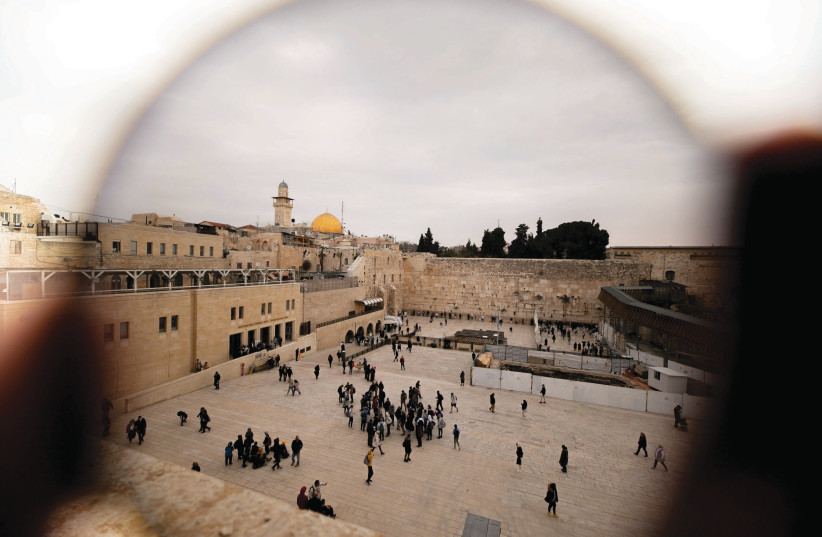An asteroid over twice the size of the Western Wall in Jerusalem's Old City is set to pass the Earth on Jerusalem Day, June 5, according to NASA's asteroid tracker.
The asteroid in question has been dubbed 2024 JR17, the Center for Near-Earth Object Studies (CNEOS) at NASA's Jet Propulsion Laboratory (JPL) revealed.
The metric originally meant for this article was supposed to be the Beit Hamikdash, also known as the ancient First and Second Temples of Jerusalem, per the birthday wishes of the writer's father (happy birthday, dad!), but those were too big unfortunately.
Asteroid, if I forget you: How big is the asteroid set to pass Earth?
Asteroid 2024 JR17 is estimated to be as wide as 140 meters by NASA JPL, but the Eyes on Asteroids tool narrowed it down to 85 meters, but that still puts it near 100 meters or so.
That's a lot of metric system units. So lets use a more relatable metric: the Western Wall.

Also known as the Kotel, the Western Wall is the last remnant of the Beit Hamikdash that still stands to this day.
While the Western Wall itself technically refers to the entire 488-meter stretch of wall, most people only know it as the section where Jews are allowed to pray, just 57 meters, as per the Western Wall Heritage Foundation.
With that in mind, we can estimate, though not get an exact figure, that the asteroid in question may be roughly twice the size of the Western Wall, at least the part accessible for Jews today.
Now the Western Wall, like the First and Second Temples, is made of Jerusalem stone, a kind of limestone. The question of whether asteroids can have limestone is rather intriguing, since limestone needs water to form, and liquid water can't form in the vacuum of space normally.
Theoretically though, it is possible, since asteroids do often have ice water. But regardless, since the Western Wall is solid limestone and most asteroids are rubble piles, there is actually a chance that the unit used to measure the asteroid will for once be heavier.
Asteroid shel zahav: Could an asteroid hit the Earth in 2024?
Yes, especially since it already happened earlier this year. But this asteroid isn't going to. NASA JPL projections say it will pass over seven million kilometers away.
If it did hit the Earth though, it could cause some serious damage, with 140 meters being enough to cause a major catastrophe.
But scientists have also been working on methods of protecting the Earth from these impacts, such as the kinetic deflection method showed by NASA's Double Asteroid Redirection Test (DART) mission.
So while the Temple may have been destroyed, the Earth hopefully will not.
